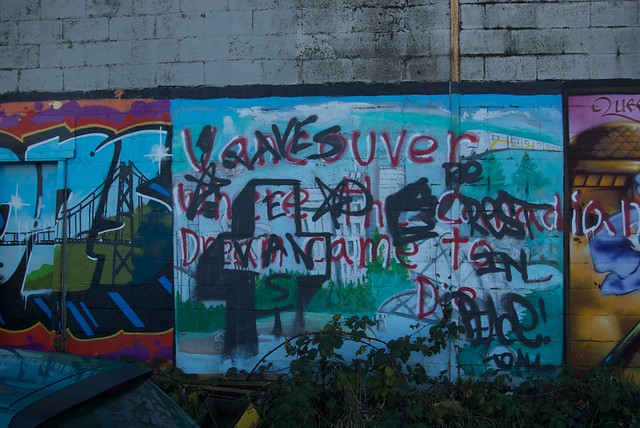Despite unanimous opposition, the Vision-led City Council voted last night in favour of limiting public expression in Vancouver. Today the BCCLA has stated that it will participate in a constitutional challenge of the bylaw, either as an intervenor or by representing a plaintiff. “We’re putting on running shoes because now there is a big race to the courts on this ludicrous measure,” said BCCLA Policy Director Micheal Vonn in an interview with The Mainlander.
An original bylaw had been proposed by City Staff two weeks ago. The version set out to implement a rigid permit system for those using any “structure, object, substance or thing” to express themselves in public. Among other restrictions, those engaged in “public expression” would be required to apply for a permit through the City and pay a fee of $200, in addition to an upfront deposit of $1000. Despite the fact that only a two-day notice was given to the public, there was so much opposition that the Mayor had to send the law back to City Staff for a review. Among concerns raised was the fact that that Staff had entered into a “confidential agreement” with the Chinese government about the proposed bylaw, as well the fact that the staff report literally lied about having garnered “general support” for the bylaw from the BCCLA.
An amended bylaw was released by the City five days ago, on Thursday April 14th. The presentation made by Staff describing the changes is available here. In lieu of the protest fee and deposit, there is now a minimum fine of $1000 for those who break the new rules. The law now allows protests outside of consulates in residential areas, which had been a major concern of the Falun Gong, who took the original bylaw to the Supreme Court and won. However, in addition to the minimum $1000 fine for failure to comply, the structures allowed are even more constrained than originally proposed, there are time restrictions placed on protest, and there is an inability to renew permits, among other things. On April 18 the BCCLA released a strong statement in opposition to the measures: “[These] bizarre, unnecessary and arbitrary restrictions on political expression violate free speech; full stop.”

